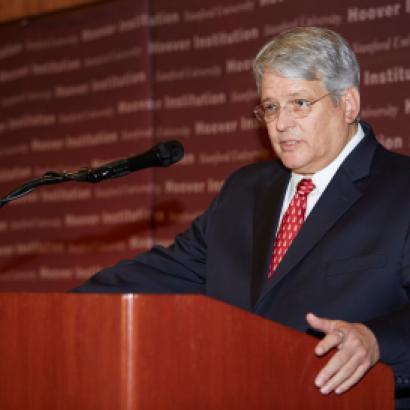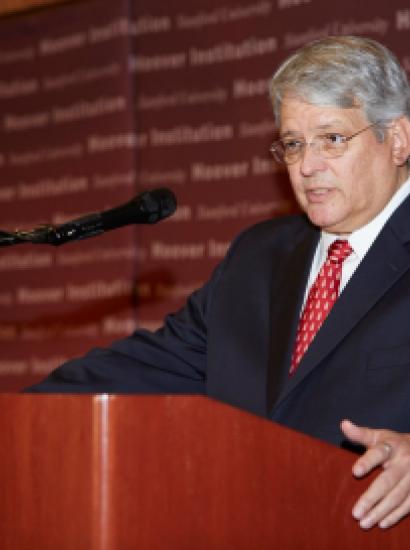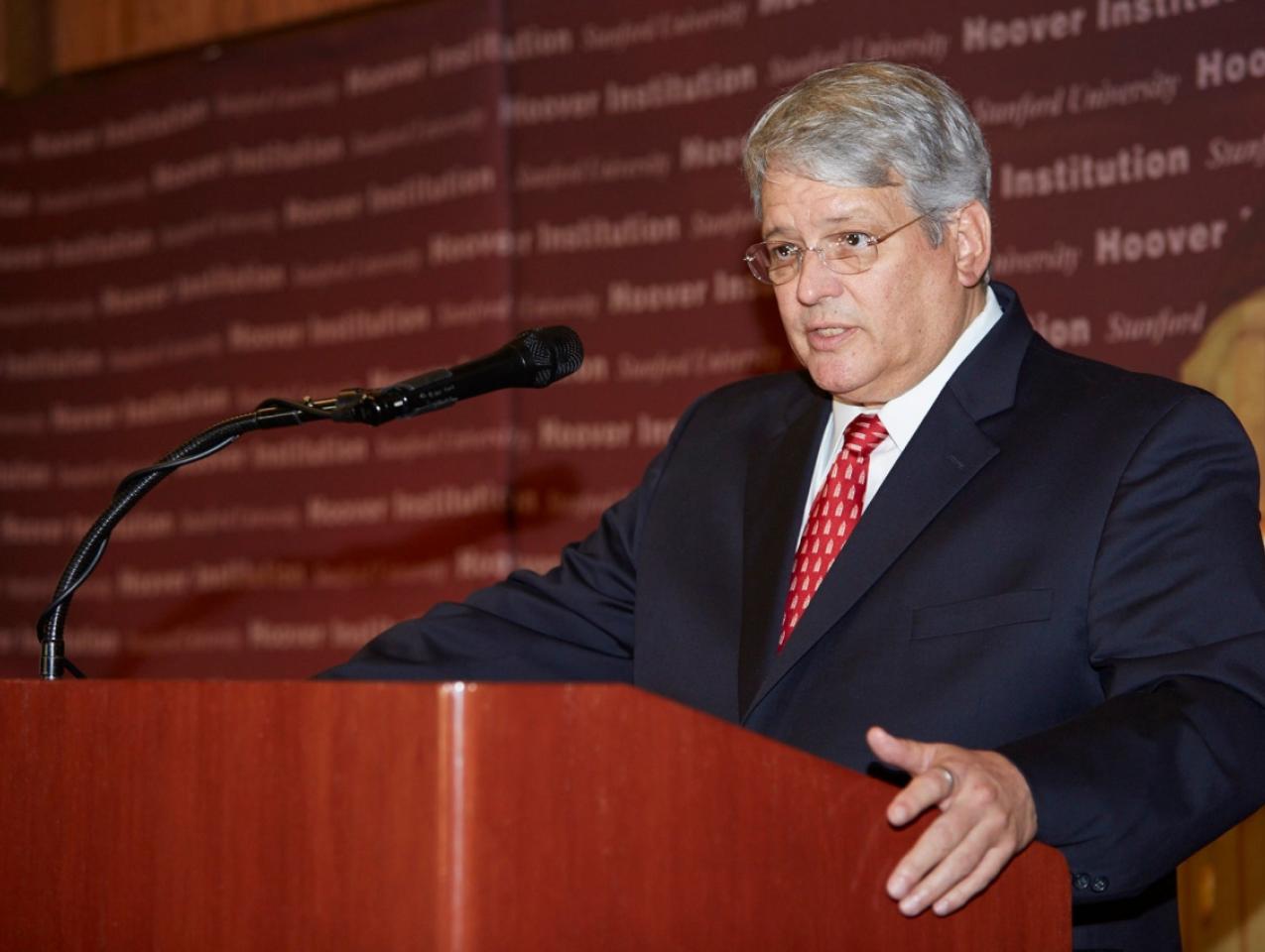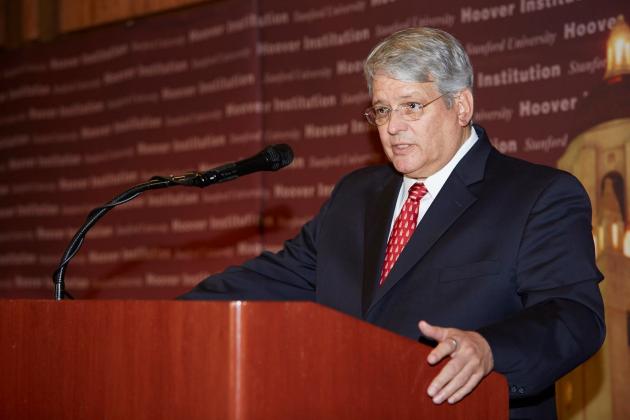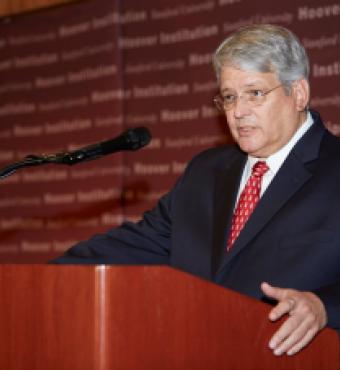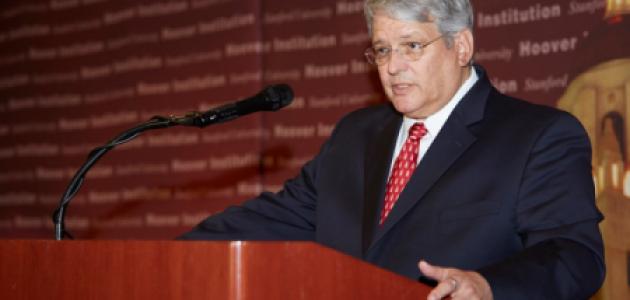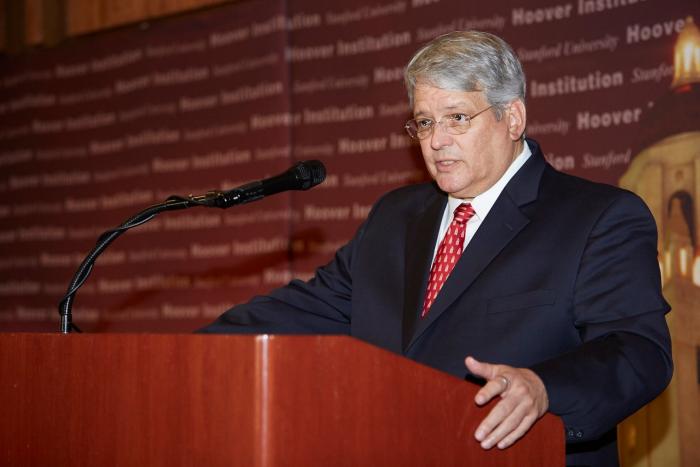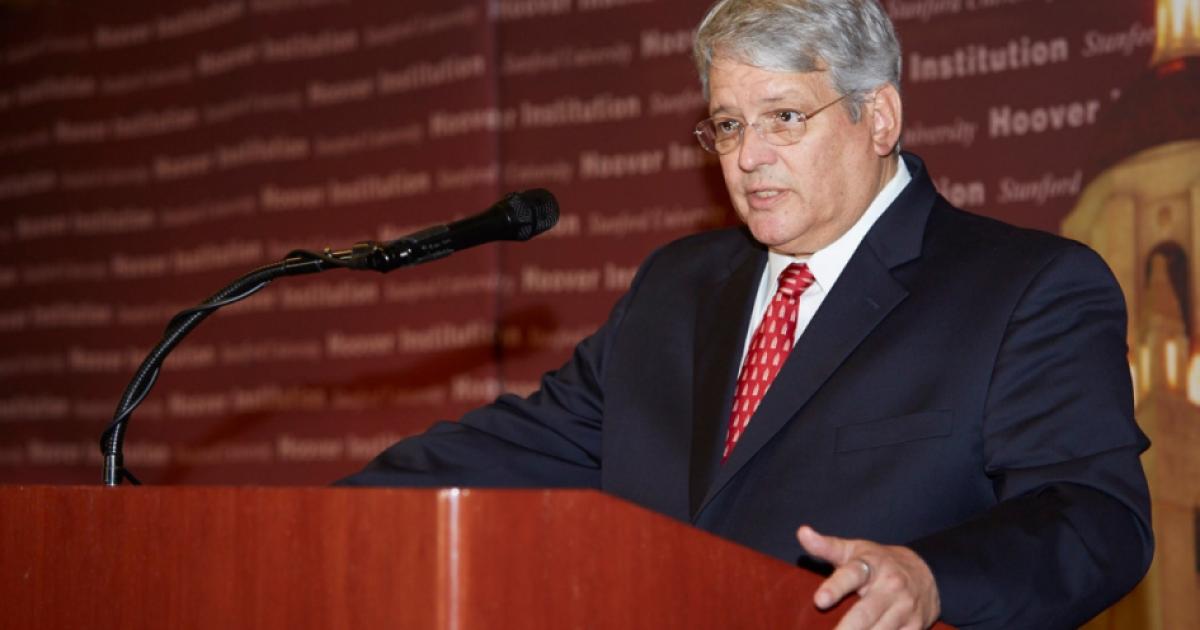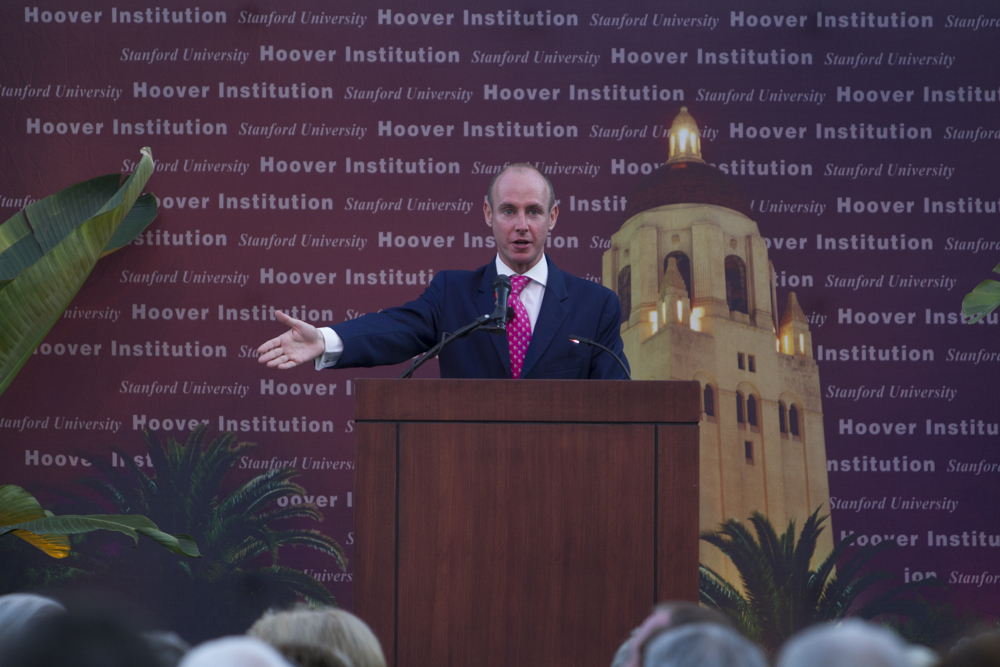
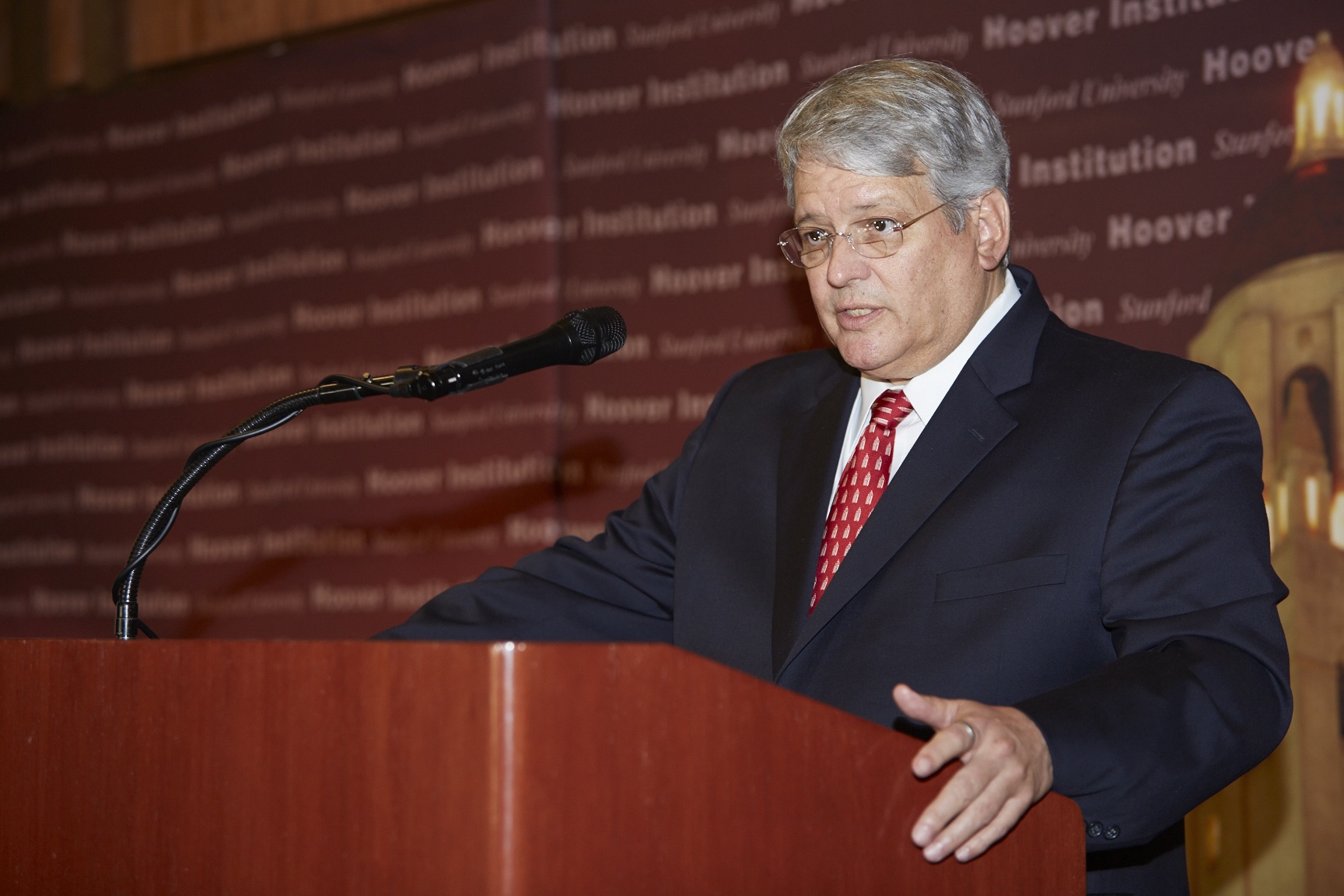
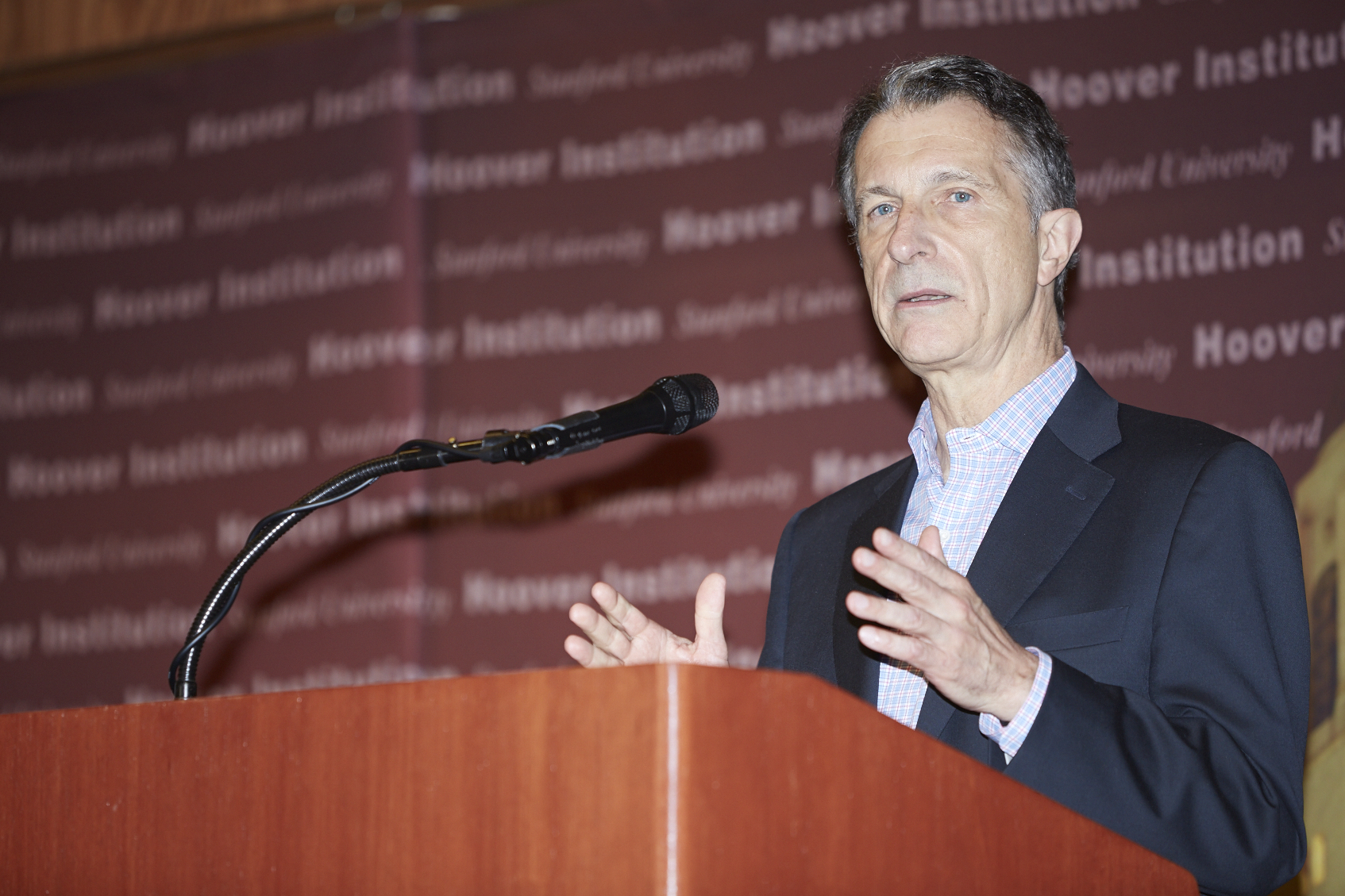
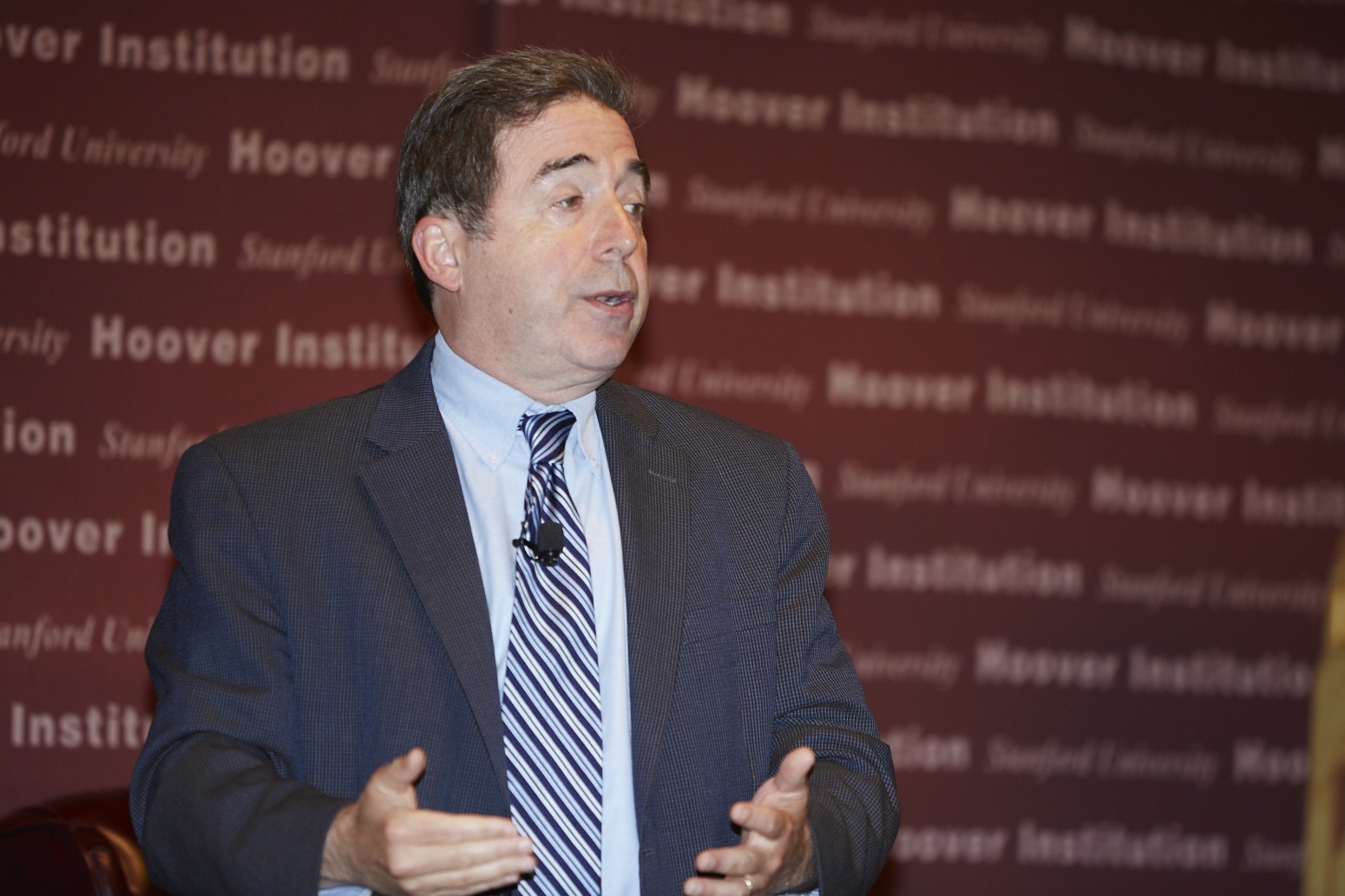
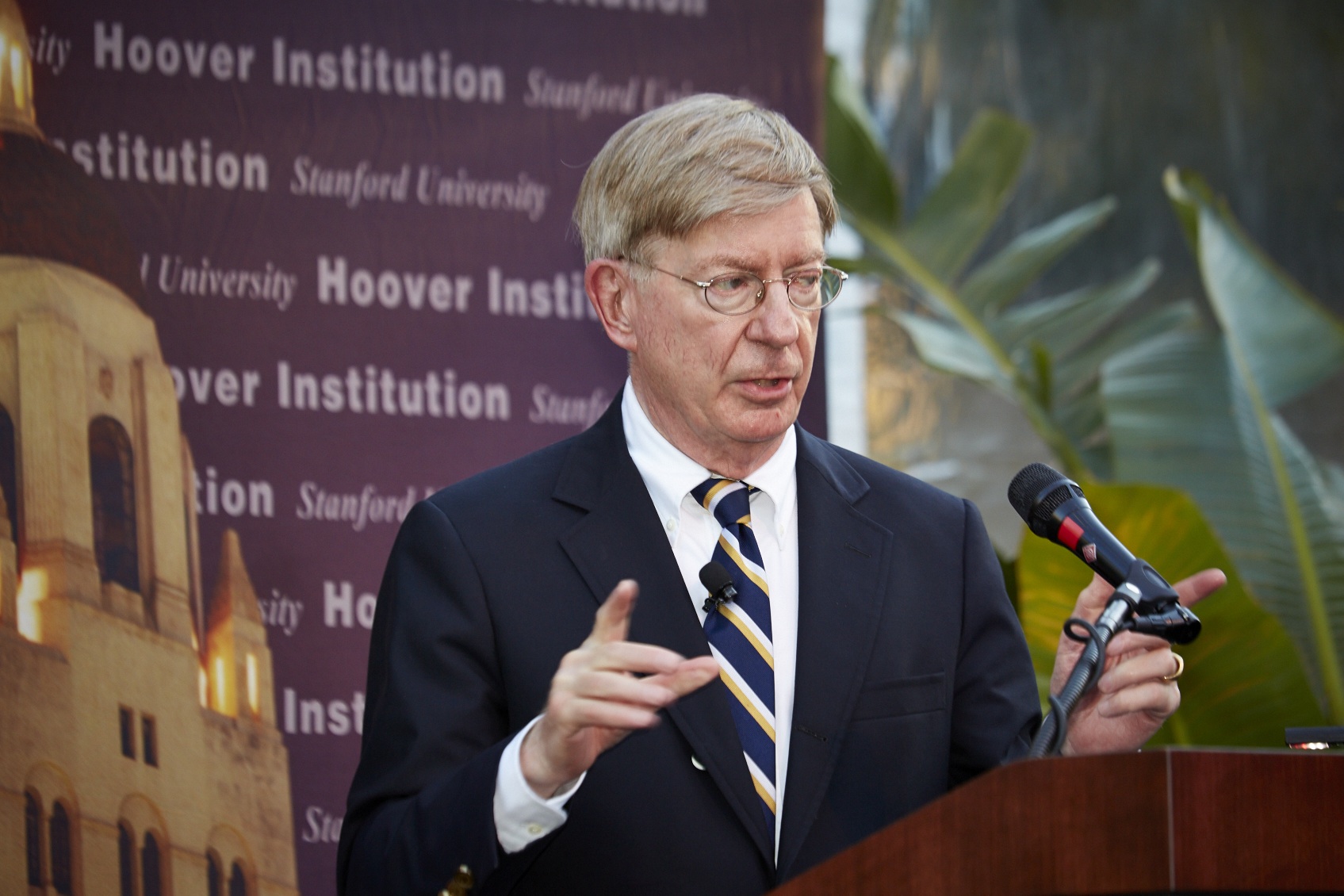
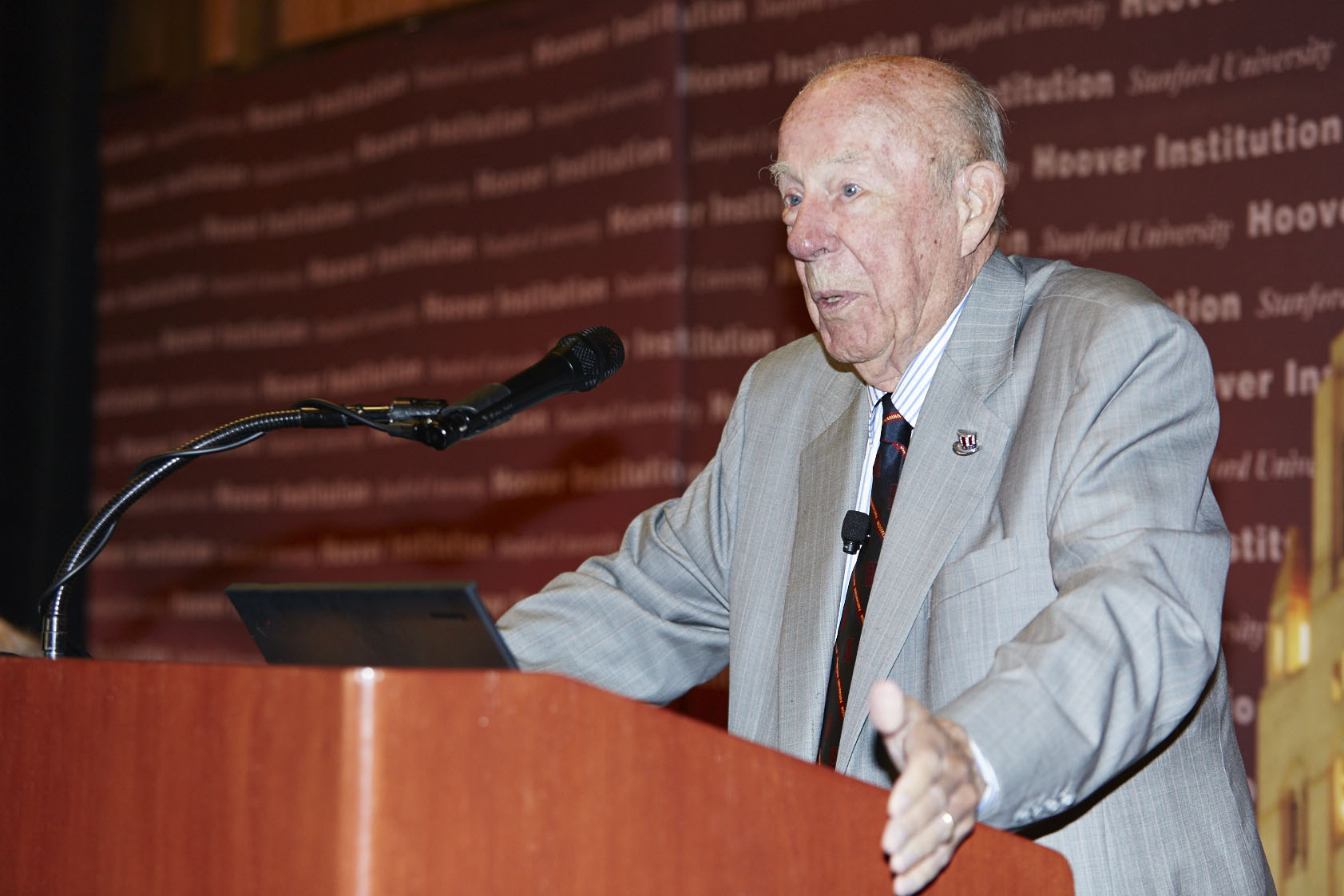
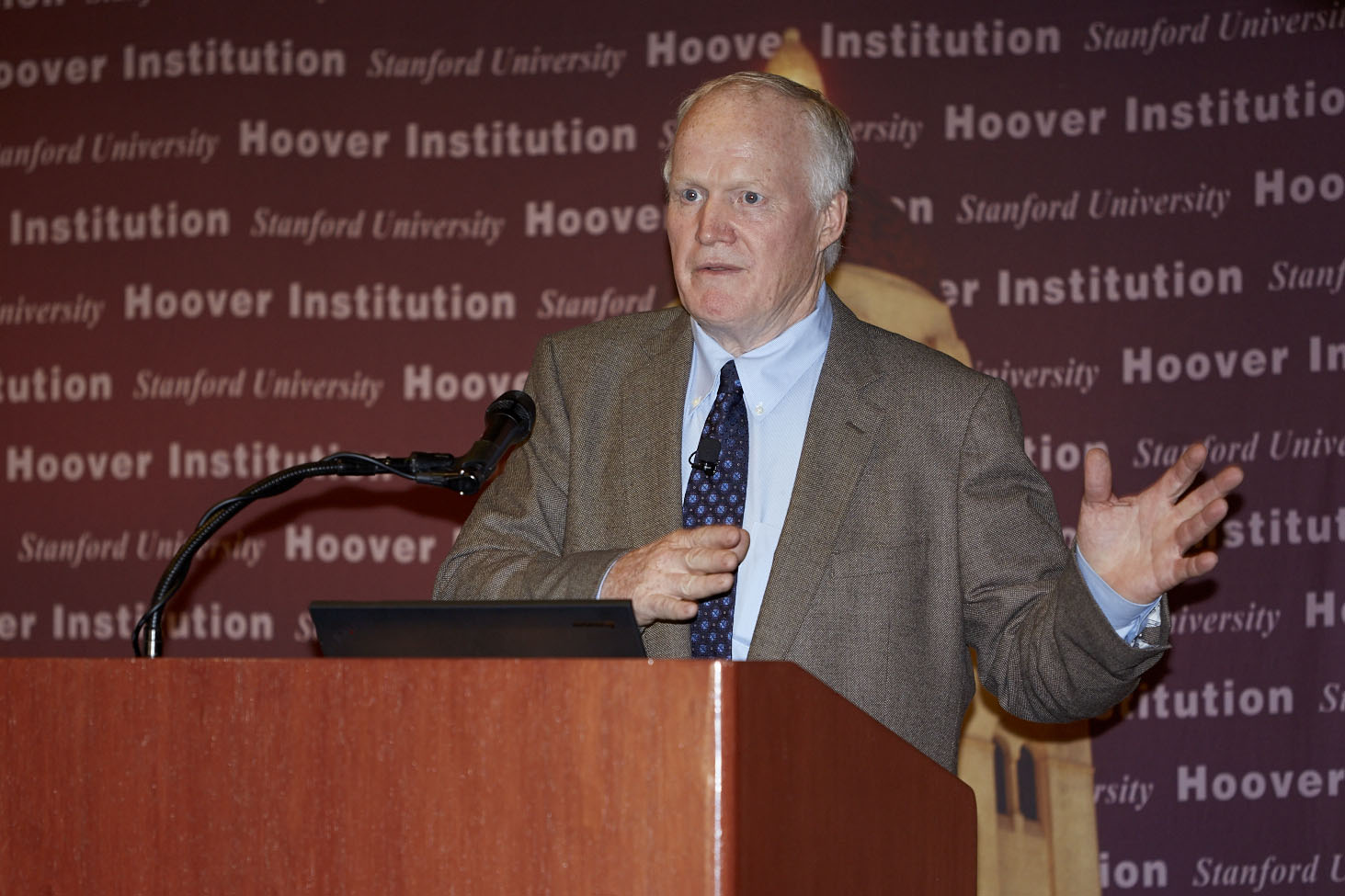
The Hoover Institution’s Board of Overseers met for its 2014 summer meeting July 8 –10. Interspersed with official board business were talks by Hoover fellows and guests, highlighting the best that the institution has to offer.
The first speaker, at the Tuesday dinner, was Daniel Hannan, a British politician who is a member of the European Parliament representing South East England for the Conservative Party. His talk, entitled “Inventing Freedom: How the English-Speaking Peoples Made the Modern World,” was based on his recent book of the same name. Hannan’s thesis revolved around the ideas and significance of the Magna Carta, arguing that, although the document expressed universal truths, it also made the English-speaking world unique. The ideas of the Magna Carta provided English-speakers with a tool kit of self-reliance and property rights without an aristocracy, defining nationality in civil terms rather than ethnic ones. Throughout American history, important individuals and organizations, from the Founding Fathers to the Supreme Court, have recognized the importance of these ideas and believed that they were freedoms worth fighting for. He ended his talk with a plea for Americans to keep the responsibility to protect and the means to exercise these freedoms with the individual, not the rapidly expanding government.
Wednesday afternoon and evening featured a series of talks. First was Daniel Henninger, a deputy editorial page director of the Wall Street Journal, whose talk was entitled “Obama and Red-Meat Politics.” For the first half of his talk, Henninger assessed the Democratic Party’s prospects in the 2016 election, focusing primarily on Hillary Clinton. He noted that, as a former member of the Obama administration, Clinton faces the conundrum of defending Obama’s foreign policy and related domestic policy, even though those policies are unpopular. He argued that Obama’s base is losing enthusiasm about him and Democratic ideas, and that, in an election that would rely especially heavily on turn out, a lethargic constituency would be problematic to a Clinton campaign. For the second half of his talk, Henninger discussed the declining importance of so-called red-meat issues, especially for the 2016 election, and emphasized the need for a Republican candidate that has a grand strategy and a strong vision for the future of the United States. He ended by giving an overview of potential GOP candidates.
Next was Hoover’s John and Jean De Nault Research Fellow Russell Roberts, who gave an entertaining talk entitled “The Future of Work in a World of Very Smart Machines.” He began by suggesting that the slow economic recovery could be at least partially due to systematic changes in the economy and the need to replace jobs lost to technology. He emphasized that this phenomenon is not new and that, if viewed as an example of creative destruction, can be a powerful agent of change. He posited a time traveler visiting a farmer a century ago, when almost half the United States was employed by farming, telling the farmer that in the future only 2 percent of the United States would be employed in farming. The farmer would likely predict a labor market disaster, not able to foresee that the technological changes involved heralded an advent of other unskilled jobs, such as factory work or truck driving. Today’s situation is similar, but many fear that phasing away unskilled labor as a result of technological change is not restricted to one sector but rather is endemic to every sector. If this is true, what employment would be available to unskilled laborers? Roberts ended by discussing the need to create an education system in the United States in which students can excel and find a fulfilling occupation to cope with a technologically advanced world. Roberts has discussed in greater depth various aspects of this talk, including MOOCs and technology in the labor market, in several episodes of his weekly podcast EconTalk; visit the EconTalk archives for more information.
Third for the afternoon was Hoover senior fellow Michael J. Boskin, who gave a talk entitled “Key Factors Determining Our Economic Future.” His talk encompassed a wide range of topics, from the short-run to the medium- and long-run outlooks. The highlight of his talk consisted of ten questions about the fundamental determinants for the evolution of the economy in the coming decades; those questions included, Will the effects of technology and globalization on labor markets abate? Will our current demographic changes (which, he notes, are historically new phenomena) overwhelm our fiscal, economic, and global position? And will our future labor force be well enough educated? He ended with an agenda for prosperity, including the need for entitlement and tax reform; rules-based monetary policy; investment in human capital; free trade; and improved governance and rule of law.
Last in the afternoon was Annenberg Distinguished Visiting Fellow James N. Mattis, who gave a brief talk entitled “The Middle East Situation: Terrorism, Fraying Borders, and Authoritarians,” followed by an extensive question and answer period with the audience. The ensuing discussion touched upon several topics, including Kurdistan; ISIS, Iran, and the United States; China’s global influence; US foreign policy; Egypt’s future; the effect of sequestration on the military; and the status of US allies.
Wednesday evening featured dinner remarks entitled “The Political Argument Today” by journalist and Pulitzer-Prize winner George F. Will. He began with an overview of the state of the Republican Party, including the “creative loss” of Barry Goldwater in the 1964 presidential election. He went on to argue that there has been a failure of government from both parties, collapsing people’s confidence in government. The second part half of his talk covered how the Republican Party can get back on track, specifically in the debate about equality in the United States with regard to freedom, the welfare state, zero interest-rate policy, family disintegration, and the education system. He noted that, as the issues and arguments become more complex (and length of legislation rises exponentially), the rhetoric for conveying them must become briefer for the sake of television and social media. He ended by explaining how the heightened political stakes have raised the national temperatures, engendering more impassioned arguments. Later Wednesday evening, Hoover Overseer and Vice Chair Boyd Smith was honored with the Institution's Uncommon Commitment Award in recognition of his contributions to the Institution and its guiding principles. Thursday morning's activities commenced with another acknowledgement of outstanding service, as the title of Distinguished Overseer was conferred upon longtime Hoover supporter, William C. Edwards.
The final speaker of the retreat was Kevin M. Murphy, a member of the Shultz-Stephenson Task Force on Energy Policy, with a talk entitled “Education, Human Capital Investment, and Inequality.” He began with an overview of inequality today, pointing out that the premium of a college education is higher than ever before, and that the income disparity between education levels as well as within education levels has increased in the past three decades: the lowest wages have had no growth, while the higher the wages, the higher the growth. Murphy argues that this somewhat unexpected comparison can be explained by supply and demand: technological advancements and investment in capital tend to complement skilled and educated labor, meaning that the demand for skilled labor and, hence, higher levels of education, also increases. The fact that more people are attending college but that the demand for skilled labor continues to outstrip the supply, suggests that people struggle to finish college, a theory supported by Murphy’s data. He attributes this difficulty to poor education preparation in grade school, a problem that he refers to as the human capital challenge. He ended his talk with a case for improving the US education system, emphasizing the need for both urgency and patience, as such reforms would take years to see the benefits but that failure to act would mean years of paying the consequences.
The Hoover Institution holds two board meetings each year, at Hoover's home on the Stanford campus and in Washington, DC.







